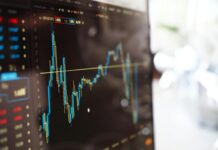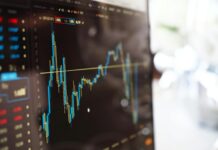Artificial intelligence robots are all the rage nowadays, especially when it comes to dealing with the chaos of global trade. Businesses are turning to these high-tech tools to help them navigate the twists and turns of international commerce. Several tech companies spilled the beans to CNBC about how they’re using artificial intelligence to visualize global supply chains—from the raw materials used in products to where those goods are being shipped from—and understand how they’re impacted by President Donald Trump’s reciprocal tariffs.
Last week, Salesforce made waves by unveiling a new import specialist AI agent that can instantly process changes for all 20,000 product categories in the U.S. customs system. This nifty agent then takes action as needed to help companies deal with tariff system changes. The engineers at Salesforce used the Harmonized Tariff Schedule, a massive 4,400-page document of tariffs on goods imported to the U.S., to inform the answers generated by the agent. Eric Loeb, executive vice president of government affairs at Salesforce, expressed the challenges businesses face in keeping up with the rapid pace and complexity of global tariff changes. In the past, companies may have relied on small teams of experts to keep pace, but AI is changing the game.
AI systems are allowing firms to make decisions on adjustments to their global supply chains much quicker than before. Andrew Bell, chief product officer of supply chain management software firm Kinaxis, highlighted how manufacturers and distributors are using machine learning technology to evaluate their products, materials, and external signals like news articles and macroeconomic data to make informed decisions. With this information, simulations can be run to understand the impact of changes in tariffs on various components. It’s like having a crystal ball to predict the future of global trade.
Trump’s tariffs have shaken up the world of trade, forcing companies to rethink their supply chains and pricing strategies. Companies like Walmart and Nike have already increased prices on certain products due to the tariffs. The uncertainty created by these measures has actually become a moment for AI to shine, according to Zack Kass, a futurist and former head of OpenAI’s go-to-market strategy. AI presents an alternative proposal in a world where quick manpower solutions are not feasible. Nagendra Bandaru, managing partner and global head of technology services at Indian IT giant Wipro, highlighted how clients are using their AI solutions to pivot supplier strategies and manage duty exposure dynamically as policies evolve. Wipro uses a variety of AI systems, from large language models to traditional machine learning and computer vision techniques, to inspect physical assets in cross-border transit.
While AI is a powerful tool, it’s not a magical fix for all trade woes. Bandaru emphasized that AI enhances trade policy strategy by transforming global trade into a proactive, data-driven advantage. The success of any AI solution depends on the quality of the data it has access to. Ajay Agarwal, partner at Bain Capital Ventures, pointed out how FourKites, one of his portfolio companies, is using AI to help firms understand the logistics impacts of adjusting suppliers due to tariffs. The volatility of tariffs has severely impacted rates and capacity in both ocean and domestic freight networks, making it a challenging time for businesses to navigate the trade landscape.

























